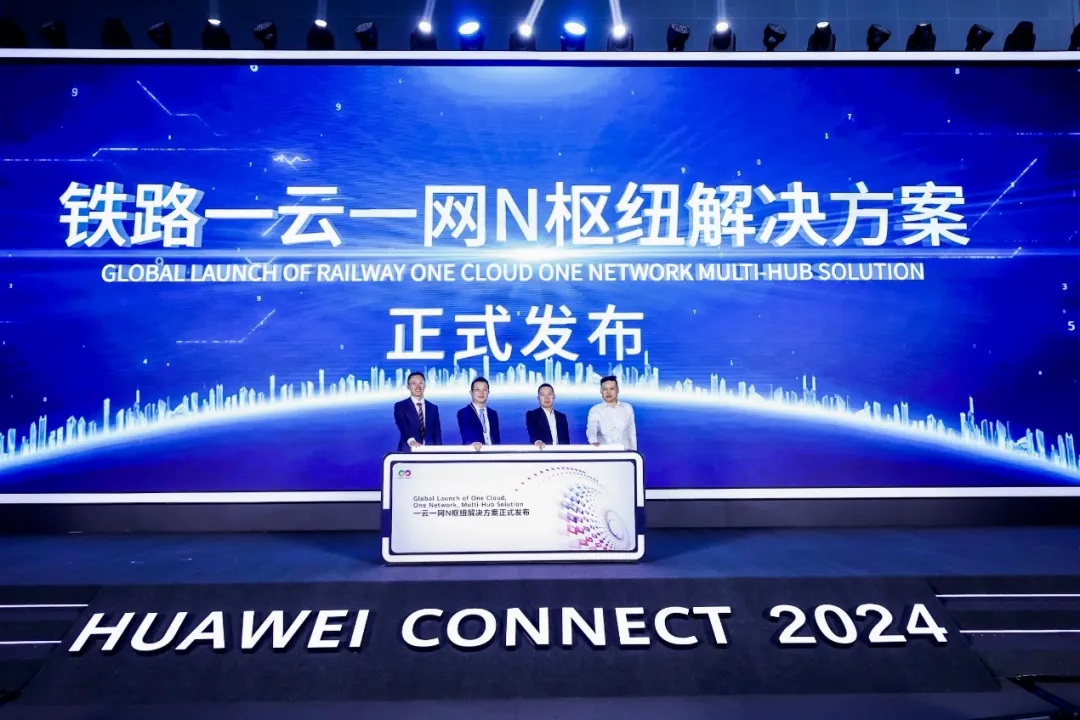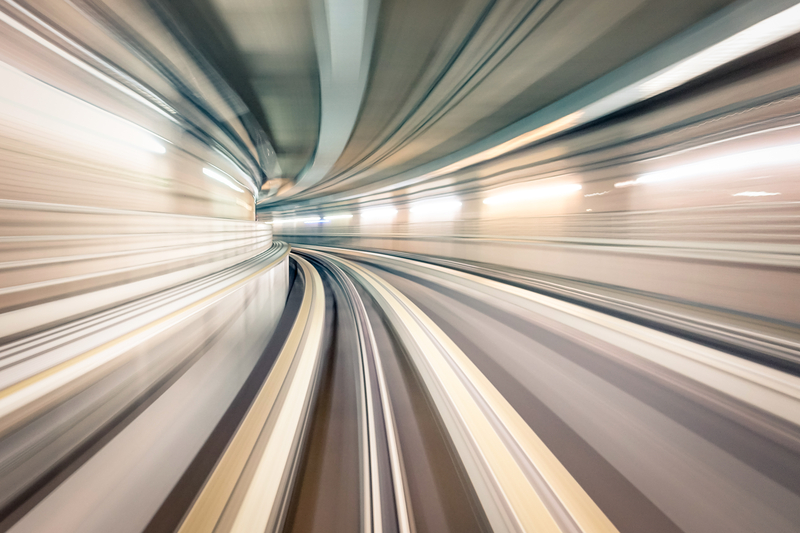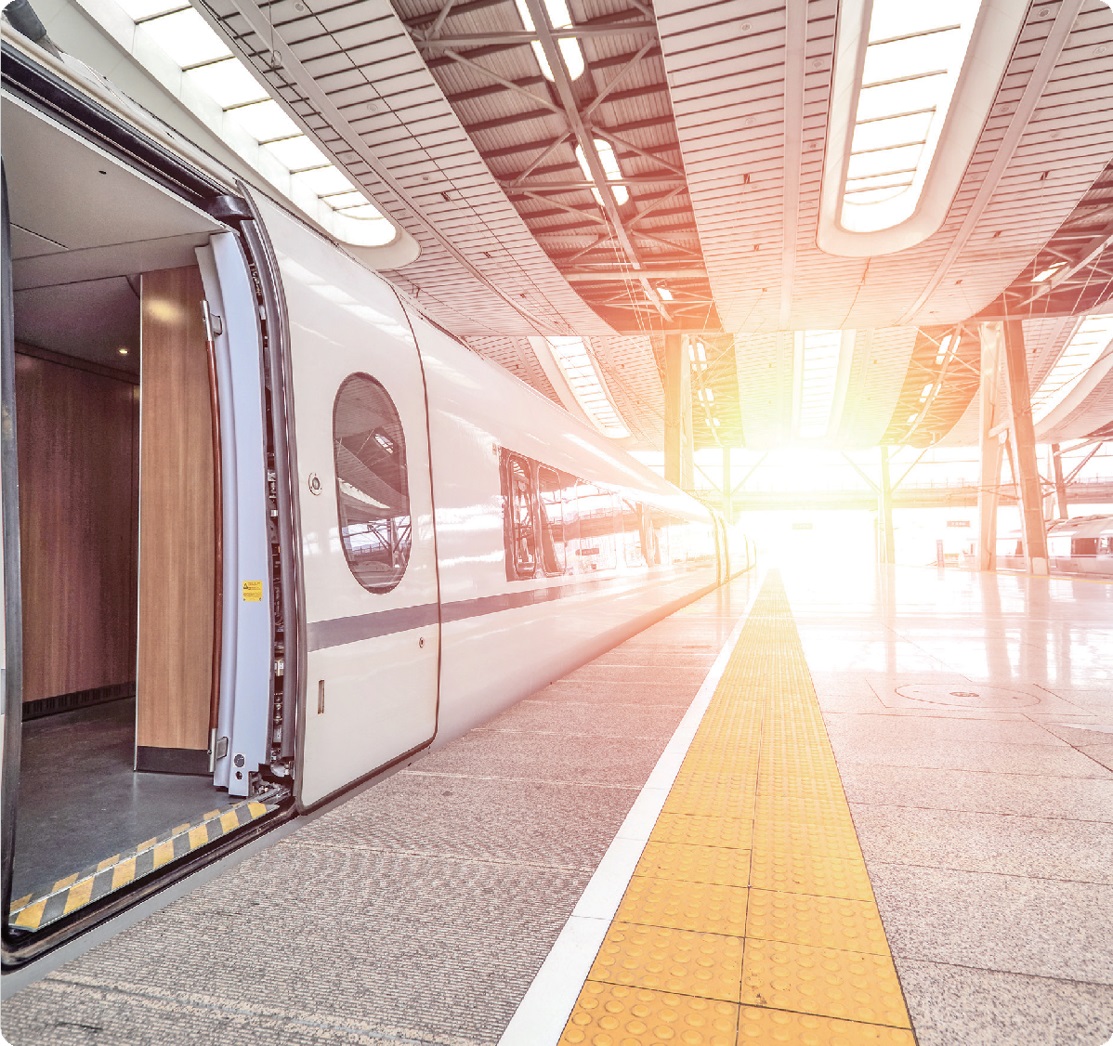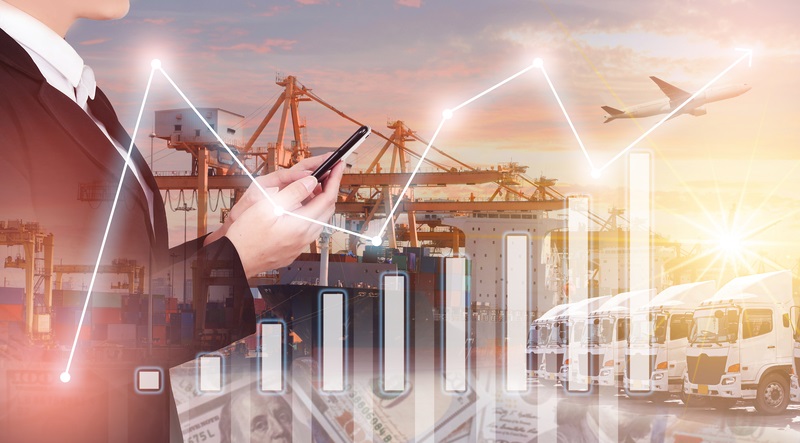
Digitalisation is the key to innovation in the transportation sector. Safe and secure modes of transportation, innovative technologies and platforms that support mobility operators coupled with effective information at the service of users, are the prerequisites for making public transportation better meet the needs of citizens. And in turn making urban environment smarter and sustainable.
In this context, Leonardo develops mobility solutions, centred on digitalisation and new technologies that provide quality and efficiency.
The company's role in the effective use of IT technologies in transportation is also evidenced by its “principal member” status in the ITxPT (Information Technology for Public Transport) Association.
This international association aims to simplify IT technologies for operators and suppliers of public transport, creating a uniform standard for the interoperability of hardware, communication protocols and services.
Leonardo also participates in the National Centre for Sustainable Mobility. The Centre was created to support the green and digital transition of the mobility sector towards sustainability by supporting local institutions to implement modern, sustainable and inclusive solutions in cities and regions.
Addressing new mobility trends
Leonardo's public transport fleet solutions already address new mobility trends. On-board vehicle and centre solutions are capable of handling next- generation buses, reducing the environmental impact of transportation with an aim to increase sustainability.
Leonardo solutions address the needs of new-generation transportation vehicles (electric and hybrid) to integrate their systems and data. Based on applications of artificial intelligence, these solutions are geared toward optimised service planning, predictive diagnostics, security and increasingly adaptive regulation to support effective, as-a-service mobility.
For example, Leonardo’s partnership with Autolinee Toscane, - the Italian branch of the French RATP Dev - , one of the main players in transportation at worldwide level with 1.5 billion passengers, distributed in 470 cities in 13 different countries. With this agreement, Leonardo will support the integration and monitoring of more than 950 public road transportation lines with 24,000km of networks, over 2,600 vehicles, which stop in 37,000 stations along their routes. This project includes the upgrade of existing systems in a smarter version, such as service planning, central ticketing systems, on board validator machines, and stop poles.
Genoa, Rome, Milan, Copenhagen,. Buenos Aires, Riyadh, Lima, Singapore and Bangkok are just some examples of big cities using Leonardo solutions for public transportation. Leonardo has implemented one of the biggest digital mobile radio networks for public transportation in Europe, with 160 base stations and 4,000 modems, 35,000 buses monitored with a single AVM centre, and over 8,000 on- board devices, installed on trains and buses worldwide.
These figures have been achieved due to Leonardo’s consolidated experience and to its solutions for operating centres, infrastructures and transportation means.
Road public transportation
In the field of road public transportation, eNOBU is an advanced localisation and communication system between the control room and the vehicle realised by Leonardo. Due to an on-board intelligent control unit, it provides connectivity and enables voice and data communication between the control unit and the vehicle (already 5G-ready). The on-board unit ensures satellite tracking, integration and management of all on-board systems, providing services such as acquisition of vehicle diagnostic data (including next-generation electric buses), passenger counting, vehicle occupancy assessment, and management of information displays with text to speech function.
Specifically designed to manage a surface fleet based public transport in a simple and effective way, Matrics AVM (Automatic Vehicle Monitoring) is the Leonardo suite for public transport management, providing operators with powerful and clear representations, together with highly effective tools for regulating service.
The suite meets the needs of operators, drivers, and passengers by utilising big data analytics to support planning, predictive diagnostics, and increasingly adaptive service regulation to support the new directions of Mobility as a Service (MaaS). The suite optimises service management at all stages, integrating new technologies such as 5G, Artificial Intelligence and architectural standards such as ITxPT.
The New Generation Operator Unit (NGOP-AVM) is another Leonardo Intelligent Driver Display, specifically designed and homologated for automotive applications. Due to its reduced size, NG-OP-AVM can be easily installed in the vehicle cockpit, close to the driver. The Intelligent Driver Display, using its powerful processor and huge memory, can integrate fleet management, bus maintenance and video surveillance in a modular way.
Leonardo also develops SCADA (Supervisory Control and Data Acquisition) systems, which plays a crucial role in the monitoring and optimising of infrastructures activities. The Leonardo Global Ranger System (GRS®) is a SCADA system that supervises and controls electromechanical systems in stations, tunnels, depots, and line. It is a single web platform based on a scalable and distributed open architecture.
The platform can also be integrated with external systems such as signalling, telecommunications, and security; a simulation and training environment and a data warehouse system complete a state-of-the-art, highly reliable and secure-by-design platform for effective control of transportation infrastructure.
Key role in railway transportation
Leonardo also plays a key role in the field of railway transportation, where a revolution is taking place due to the definition of the Future Railway Mobile Communication System (FRMCS) new standard. At a global level, the current railways radio communication standard is GSM-R. It is no longer able to support the new operation and business needs and the information flow from new sensors and smart devices installed along the transportation lines or on-board vehicles. The digital transformation requires a greater data transmission capacity to transportation networks, in terms of quantity, efficiency and reliability, than the current one. To this end, the European Telecommunications Standard Institute (ETSI) and the International Union of Railways (UIC) are promoting the Future Railway Mobile Communication System (FRMCS). This is an advanced railways connection, able to exploit the existing technological innovation (4G/5G) with its several advantages, without affecting the operational andusers’ services today available with the GSM-R.
The development of the new standard has been defined as a resilient revolution since both technologies will coexist during a transition phase up to end of the GSM-R support, foreseen for 2030.
The advent of FRMCS will enable transferring of more data than with GSM-R, providing innovative services including infotainment, e-ticketing, smart maintenance, autonomous and assisted driving. The role of data and digital infrastructures implies that cybersecurity be considered in the early stages of design, the so-called “cyber security by design”.
Due to a consolidated knowledge of communications in public safety and railways transportation achieved by working with main international and national customers, Leonardo -a member of the TETRA Association and GSM-R industry group – is a key player. The company is one of the first developers in this sector, at the forefront of this technology.
At InnoTrans 2022 in Berlin, Leonardo displayed its solution FRMCS-MCX over the Top. It was validated and certified during the second edition of the Plugtest ETSI on FRMCS carried out from 16 - 20 May 2022, and also awarded at CCW Wien, in June 2022 as “The Best MCX solution of the Year”.
The challenge of digital transformation
The whole sector of transportation demands for digital and secure means, innovative and interconnected technologies, and platforms to support mobility operators, with data and information-sharing to provide more effective, efficient, and sustainable services. These are some of the benefits of deploying digitised mobility solutions. Due to the increasing role of data in the different application areas, the challenge of digital transformation is to guarantee its security throughout its life cycle (generation, use and propagation). IT security is essential to extract all the value contained in the data, ensuring the operational continuity of public services and the security of sensitive data of institutions, companies, and citizens.
Within this context, Leonardo is a key actor ensuring that data security will be guaranteed by the company’s secure-by-design approach. This includes services and solutions that can identify, prevent, detect, and respond to possible cyber-attacks supporting the security and resilience of its infrastructures. Leonardo’s role is also strengthened by the attention given to the diffusion of a security culture among operators. Thanks to the company’s Cyber & Security Academy, it is possible to carry out continuous training activities through solutions for the training of cybersecurity specialists, enabling the execution of attack and defence drills in a simulated environment perfectly matching the real one (digital twin) based on gaming models.
Leonardo, a global high-technology company, is among the top world players in Aerospace, Defence and Security and Italy’s main industrial company. Leonardo is the reference industrial partner for the security of digital ecosystems and the resilience of strategic assets. Data, to be valued and protected, is central: from solutions to face cyber threats, to services for the secure digitalization of processes, infrastructures, and applications, to mission and business critical communications, and to systems and platforms for global monitoring. Leonardo operates with a systemic vision, integrating physical and logical security, to protect institutions, critical infrastructures, and strategic companies from multi-domain threats.
Content produced in association with Leonardo












